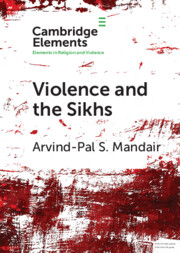This article rethinks how we understand religious reform under colonial rule by examining Maharaja Duleep Singh, the deposed ruler of the Sikh empire, and how the Singh Sabha, a Sikh reform movement, debated, deployed, and organized around him in the late nineteenth century. I demonstrate how religious reform was a site of intense conflict that reveals the processes of argumentation within the contours of a tradition, even as the colonial state sought to continually mediate the terms. Embedded within a frame of inquiry provided by the Sikh tradition, the contestations that constituted reform within the tradition remained intimately tied in with the question of sovereignty. Ranjit Singh's empire in Panjab had only been annexed 30 years earlier in 1849 and remained a central reference point for thinking about the political at the turn of the century. These debates surrounding Duleep Singh, therefore, disclose the contentious engagements within a tradition that cannot be reduced to binary designations such as colonial construct/indigenous inheritance or religious/political.
